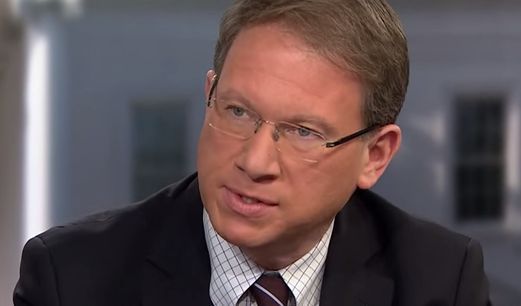Today’s Top Stories
1. As this roundup went to press, there were conflicting reports of an alleged Israeli airstrike in eastern Lebanon, near the Syrian border. It’s not yet clear what may have been targeted or if there were casualties.
2. Syrian Druze could flee to Israel as Assad may abandon them to ISIS. Israeli Druze activists told government officials and the Jerusalem Post that the ISIS threat to their co-religionists in southern Syria is now “existential.” For more on the IDF assessment of the Syrian situation, see Haaretz.
3. A cyberattack tied to Hezbollah ups the ante for Israel’s digital defenses:
The malware discovered is more advanced than most and signals a high degree of technical ability among the militant group, he says. This is the first time Hezbollah has been tied to a major cyberattack.
4. HR Radio: Time Correction, Battling the BBC, and Weymouth’s Double Standards: The Washington Post’s Lally Weymouth interviews an Israeli and a Palestinian official, but makes clear whose view she thinks is more reasonable. HonestReporting’s Yarden Frankl also discusses a new petition demanding BBC accountability. Click below to hear the full interview on the Voice of Israel.
Israel and the Palestinians
• Gaza’s ISIS supporters warned Hamas to end its crackdown on them, though no specific consequence was threatened, reports AP. Later in the day saw reports that Hamas killed a Salafist supporter of ISIS. I’d like to say “pass the popcorn,” but when Palestinians fight like this, someone eventually has to demonstrate his jihadi machismo by firing rockets at Israel.
• Israel slammed the UN for granting accredited NGO status to a Hamas front organization. Reuters and AFP picked up on the story.
• Der Spiegel was accused of manufacturing a German-Israeli diplomatic crisis. I added links to the German language sites referred to in the Jerusalem Post:
Spiegel alleged that Israel denied Steinmeier’s plane permission to fly through its airspace during a trip to the Middle East in May because he snubbed a visit to Israel.
“Spiegel’s contention is astonishing, because at that time it was already known that Steinmeier would be coming to Israel in two weeks to receive an honorary doctorate at Hebrew University, “ wrote Ulrich Sahm, a prominent German journalist in the German-language website Israelnetz.

• Haaretz updates the latest on the European drive to label settlement products.
• The Times of Israel takes a closer look at New Zealand’s foray into Mideast diplomacy.
• Professor William Jacobson of Legal Insurrection visited Sderot.
Around the World
• Iran’s stockpile of nuclear fuel grew 20 percent during the course of 18 months of international negotiations. According to the New York Times, nobody’s sure how how or why, but one thing is clear: The disclosure is a serious headache for President Obama:
In essence, the administration will have to convince Congress and America’s allies that Iran will shrink its stockpile by 96 percent in a matter of months after a deal is signed, even while it continues to produce new material and has demonstrated little success in reducing its current stockpile.
• President Obama to Israeli media: There’s no military solution to stop Iran. The full interview airs tonight.
• According to Iranian estimates, it would take 50,000 troops to save Bashar Assad. If sent, their task would be to ensure that Syria’s coastal region isn’t cut off from Damascus.
• A Belgian cop faces dismissal after writing on Facebook how he’d “kill each and every Jew.”
• George Galloway says he wants to be London mayor to rally support for Palestinian cause.
Commentary/Analysis

• Worth reading: Foreign Policy picked Jeffrey Goldberg’s brain about Obama, Israel, Iran and the peace process.
But I also worry that he is unrealistic about aspects of the Iran deal, for a number of reasons — the way they will spend their money, his belief that his negotiators are dealing with rational people — rational in the way that you and I think of rationality — and so on.
On Gulf issues, the hardest swallow is that he appeared to be warning Saudi Arabia of the consequences associated with gearing-up its own nuclear program, but he’s attempting to strike a deal with Iran that allows it, in essence, to maintain the infrastructure of a nuclear program. In other words, an ally is being treated more harshly, in this one way, than an adversary. Of course, his answer to this is that Saudi Arabia has America behind it, so it doesn’t need a nuclear program. Still, the optics are strange, and the unhappiness of certain Arab leaders is understandable.
By the way, Goldberg posted a critique of Obama’s understanding of Israel by former IDF general and intelligence expert Yossi Kuperwasser.
 • Elliott Abrams on BDS and Israel’s burgeoning business ties with India and China:
• Elliott Abrams on BDS and Israel’s burgeoning business ties with India and China:
The perils for Israel in the hostility shown by many Europeans, and from the BDS movement, are real, but they should not crowd out understanding of the rest of the picture. While the American ‘pivot to Asia’ is largely illusory, Israel’s own is real–and successful. Often more attention is directed at critical actions toward Israel by nations such as Ireland, population 4.6 million, than to Israel’s developing political and economic relations with the world’s two most populous countries. One might even wonder who is growing more isolated–Israel or its most hostile critics?
• I’m also reading:
– Benny Avni: Obama’s nuke deal will leave Iran funding even more terror.
– Jennifer Rubin: The concessions to Iran keep on coming
– Professor Abraham Miller: The common core of BDS and campus anti-Semitism.
– Yoaz Hendel: BDS is an asymmetric war for world opinion
– Dore Gold: The Gaza War 2014: The war Israel didn’t want and the disaster it averted.
– Colum Lynch: Behind scenes, US shields Israel at UN
– Omer Dostri: Hezbollah’s indirect war on Israel
Featured image: CC BY-NC flickr/Ben Raynal with additions by HonestReporting; Goldberg via YouTube/Face the Nation on CBS; rupees CC BY-NC-ND flickr/sangboo nam;
For more, see yesterday’s Israel Daily News Stream and join the IDNS on Facebook.

